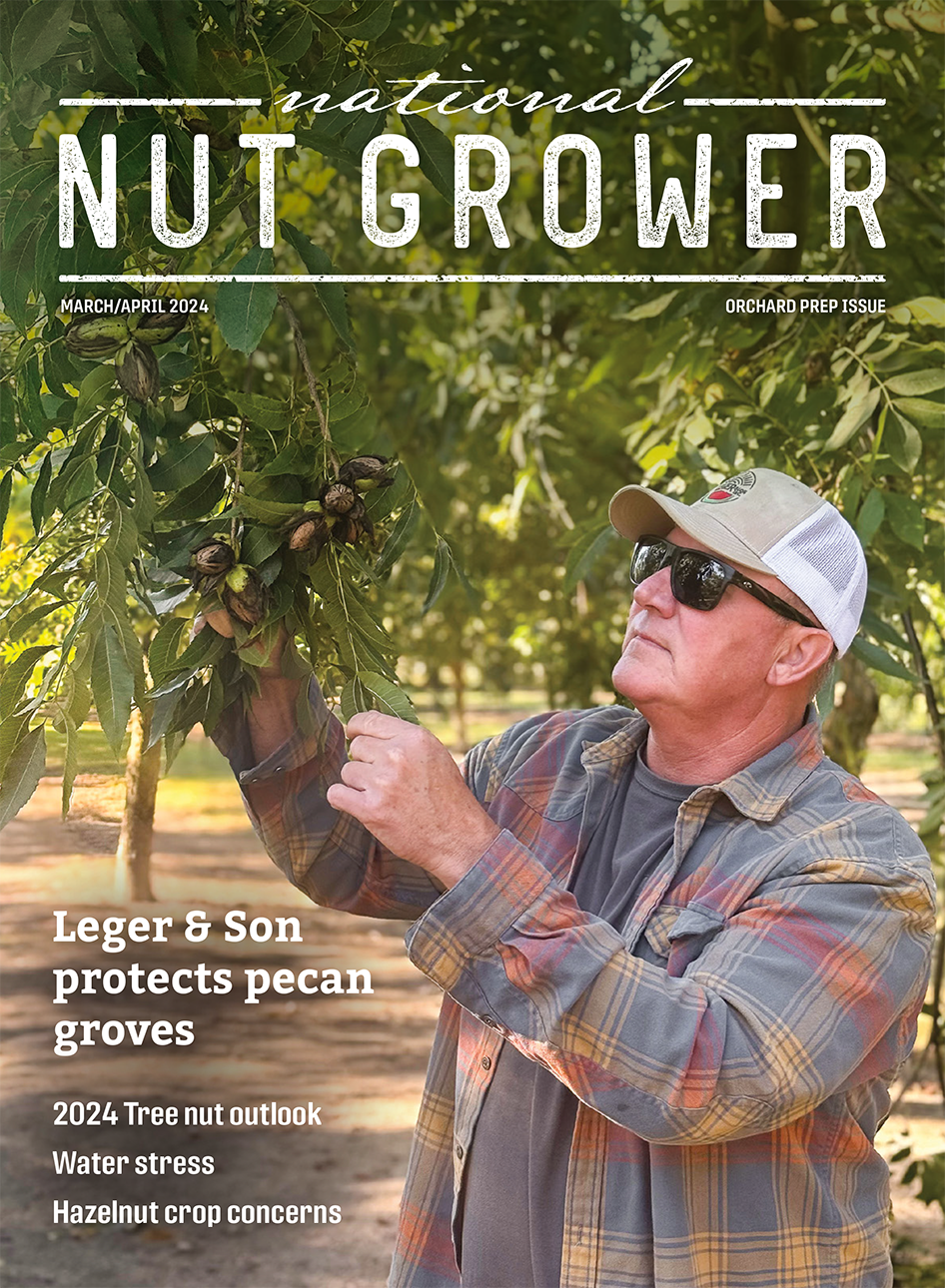Oct 20, 2021Take care of pecan trees during fall months
Pecans are a Southern delicacy. From pecan pies and pralines, to pecans straight out of the shell, they are a popular ingredient used in Southern cooking. Likewise, pecan trees are popular in home landscapes and on commercial farms. While pecans are delicious, the trees are susceptible to a wide variety of pests that can have a significant impact on productivity. That is why both home and commercial growers must follow proper management practices.
Pecan tree management
Alabama Cooperative Extension System Commercial Horticulture Regional Agent, Chip East, said producers with small plantings cannot spray big pecan trees like commercial growers do.
“Proper management practices, such as planting disease resistant trees, proper fertilization and other management recommendations, will help pecan production,” East said.
Fertilize
East said in an established pecan orchard, fertilization is a great way to increase production.
“A soil test is the best way to determine how much to fertilize the pecan trees,” he said. “Commercial growers will also have a nutrient analysis run on the leaves to help determine if there are nutrient deficiencies. It is much easier to begin the process with the knowledge of which nutrients are already present.”
It is important to remember that pecan trees tend to be alternate bearers –meaning if the trees produce a heavy crop one year, they will produce a lighter crop the next year.
“Maintaining the fertility program in the heavy, as well as the light crop years, is best,” he said. “A proper fertilization program is very important, but there are other things you can do to increase production as well.”
Disease
Scab is a major disease of pecan trees. East strongly recommends planting scab-resistant trees on a small scale where producers don’t have the ability to spray. He said some of the best scab-resistant varieties are difficult to find. Producers may need to order these varieties one year in advance. Find a list of scab-resistant cultivars for home planting on the Alabama Extension website.
Pollination
Cross-pollination is an important consideration when planting pecan trees. Pecan trees are monoecious, meaning there are male and female flowers on the same tree.
“This does not necessarily mean they are self-fertile,” East said. “All of the male flowers do not shed pollen when all of the female flowers are receptive.”
Pecan trees fall into two categories – type I and type II.
- Type I trees are protandrous. These trees shed pollen before the female flower is receptive.
- Type II trees are protagynous. The female blooms on these trees receive pollen before the male bloom sheds pollen.
“For this reason, a grower would need a mixture of type I and type II trees for proper pollination,” he said. “Pecan trees shed a lot of pollen. Plantings do not have to be equal numbers of type I and type II trees, but they do need to be planted in the same area, as pollen is moved from one tree to another by the wind.”
Spacing
Producers should plant new trees 80 to 100 feet apart. Commercial farmers will plant trees much closer, but this is because of the ability to spray trees to manage pests. East said a wider spacing will allow more sunlight and more air circulation.
“Some growers will plant at a very close spacing to achieve more production per acre at a young age,” he said. “Eventually the grower will remove trees to the desired spacing and keep the orchard production increasing.”
Removal of trees from an overcrowded orchard can increase production. A large weed and grass-free radius around the trunk is desirable. East recommends approximately 10 feet. While irrigation may be difficult, it would be beneficial during dry periods.
More information
People can access more information on pecan tree management at www.aces.edu or by contacting their local Extension office to connect with an agent. Pecan nursery sources and more information on pecan trees are available by visiting www.alabamapecangrowers.com.
– Katie Nichols, Alabama Cooperative Extension System







